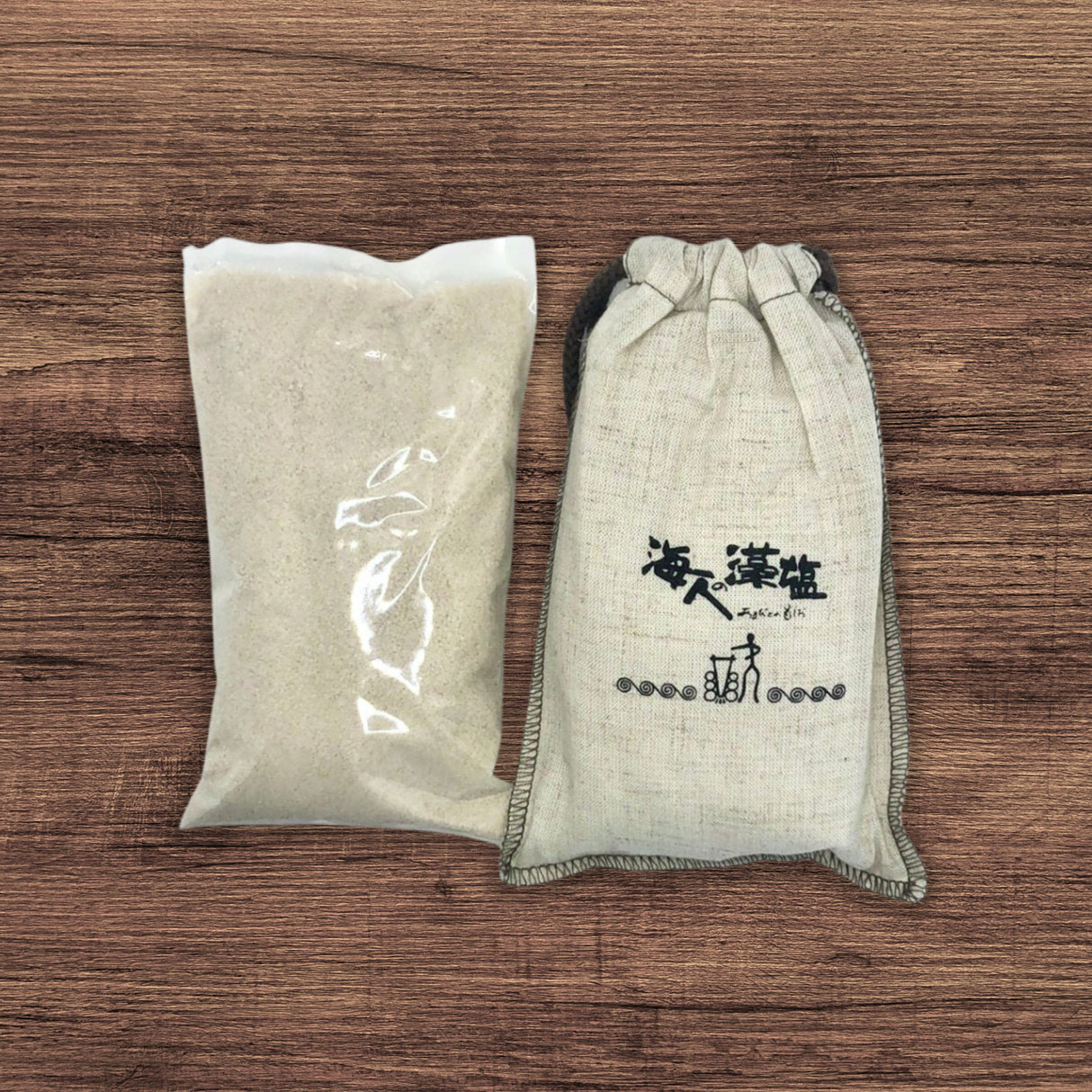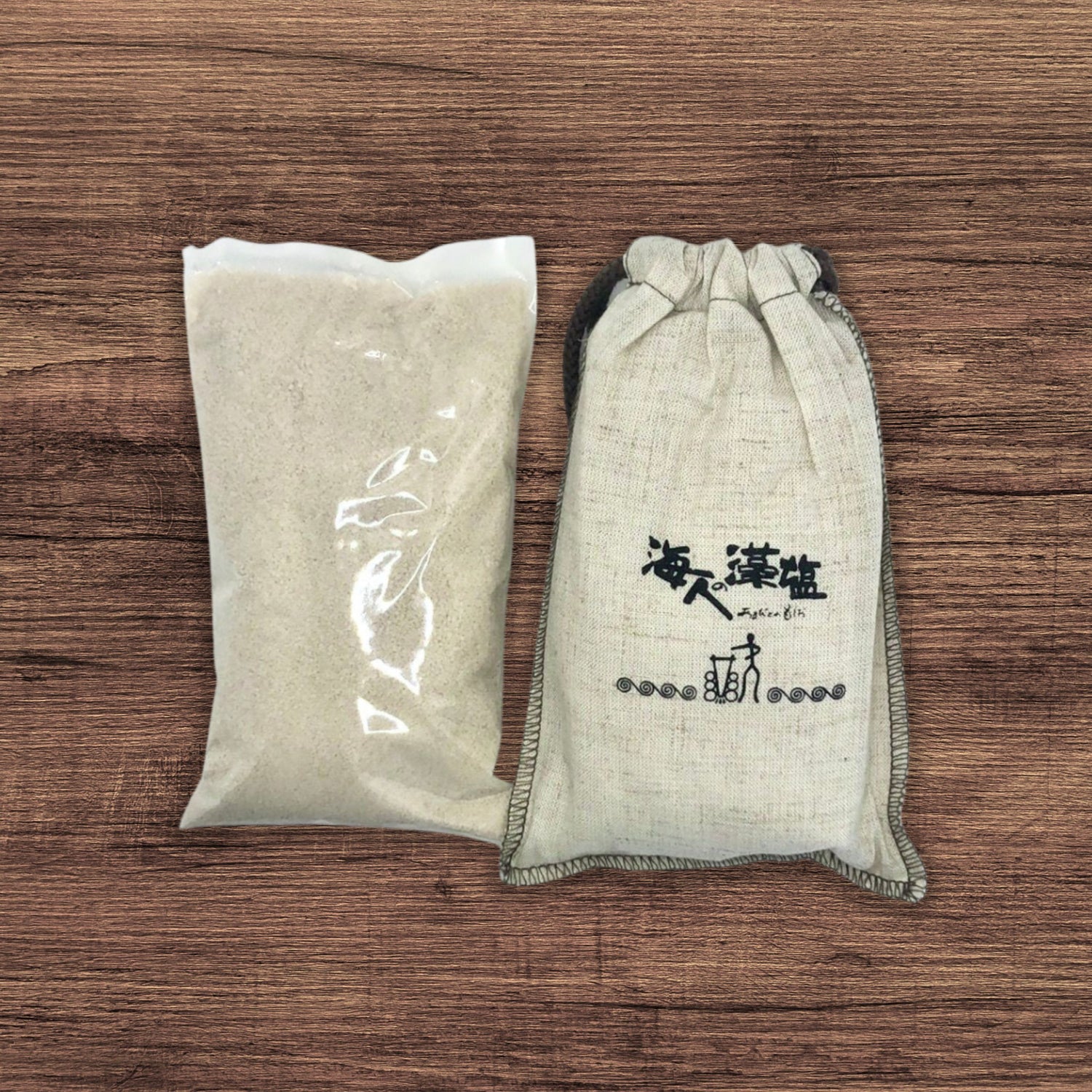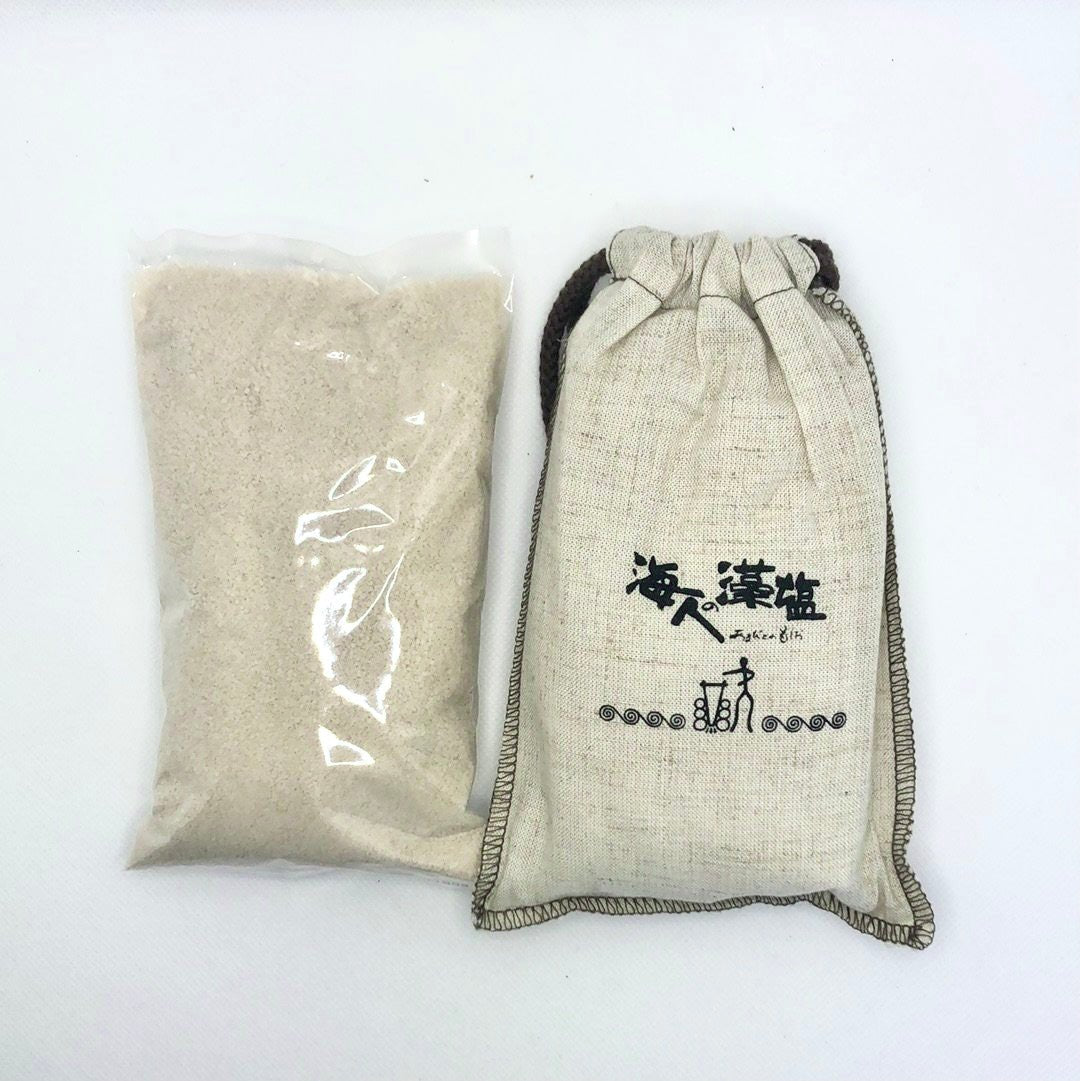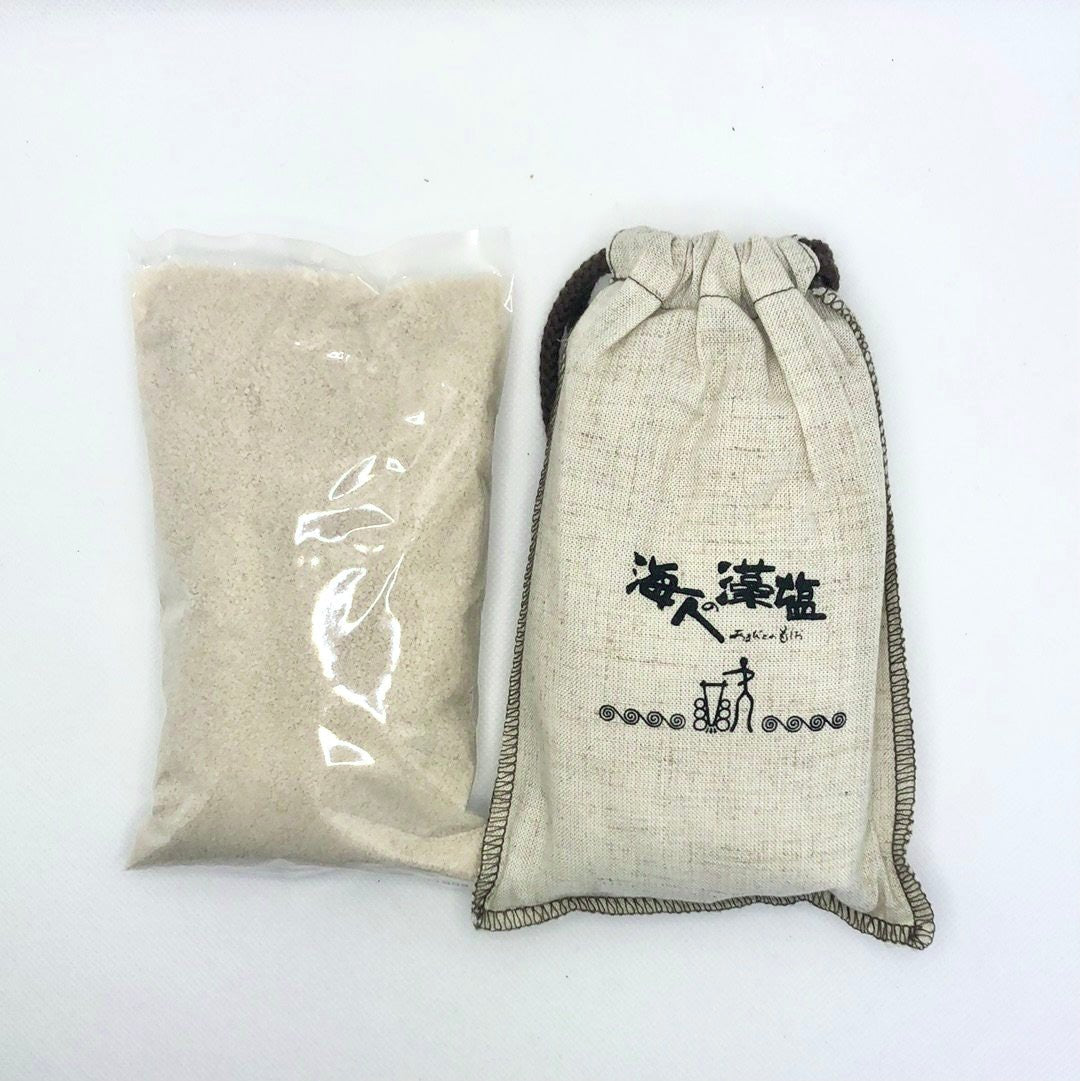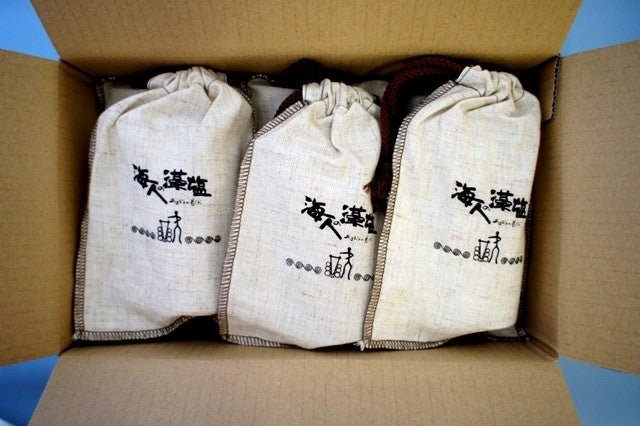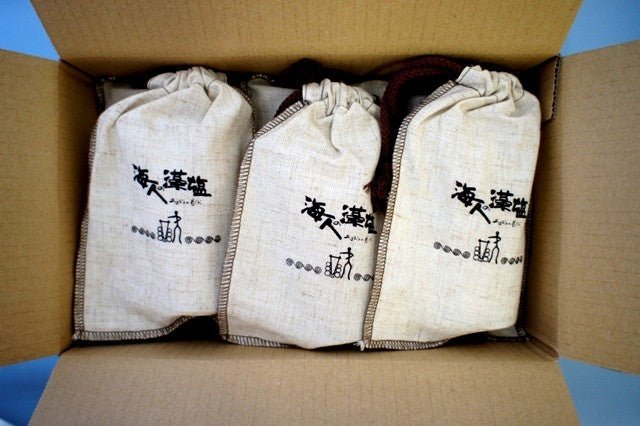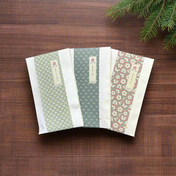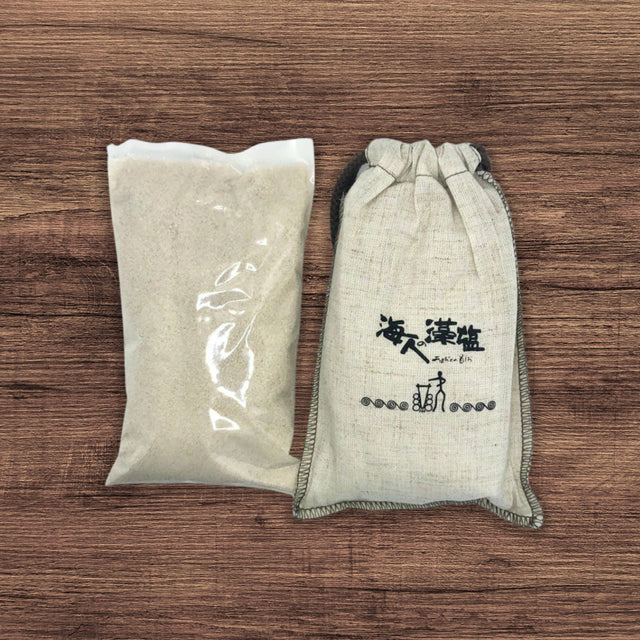Amabito no Moshio Gourmet Seaweed Salt with Gift Bag by Kamagari Bussan
Amabito no Moshio Gourmet Seaweed Salt with Gift Bag by Kamagari Bussan - 300g / 10.6 oz <-- Currently not in stock. Order now for immediate procurement (2-3 week delay). If larger size available, repacking takes a week. If "sold out", please inquire for more accurate availability.
Delivery and Shipping
Delivery and Shipping
Shipping fees vary by country, courier, and method. Place items into your inventory and go to the CART page to see the shipping estimate calculator. For some countries, we may need to manually calculate fees after purchase.
YUNOMI.LIFE'S DELIVERY GUARANTEE: We guarantee delivery for all orders shipped by airmail with a tracking number. (Conditions apply. Exceptions when notified.) Occasionally, orders may require additional customs processing for import. We will aid you to the fullest extent of our ability. If your order does not arrive within ONE month from shipment due to no fault of your own, we will replace or refund your order at no extra cost. We reserve the right to refuse shipment if we think delivery to your address may be difficult. This guarantee does not apply if recipient neglects or refuses to pay customs fees & import taxes, neglects to retrieve an order held at a post office or distribution center, or if the order is not deliverable due to a wrong address. Yunomi.life's Delivery Guarantee does not apply to wholesale purchases.
Featured on the Netflix series: Fat, Salt, Acid, Heat
Gift set perfect for party give aways and Christmas stocking stuffers.
Moshio, literally seaweed-salt (mo- meaning seaweed, -shio meaning salt), is thought to be the origin of salt making in Japan.
The Inland Sea (Setonaikai) area was a famous salt production region since the 9th century due to its warm climate, but it is the Kamagari region in Hiroshima prefecture that is known to have first produced salt as early as the Kofun period (ca. late 3rd - 7th century). Back then a method called "moshio-yaki", literally moshio firing, was used in making salt.
Beige in color, moshio is salt abundant in mineral such as iodine (a compound found in seaweed), calcium, potassium, magnesium, etc. And because its low in salt content, moshio helps control excessive consumption of sodium. Mild taste of moshio is a result of the umami extracted from seaweed, a unique quality of moshio.
There are only two ingredients in making the moshio: sea water of Setonaikai (the Inland Sea, Japan) and sargassum (brown seaweed).
Click here to learn more about how the moshio is made.
Please inquire for wholesale inquiries
Nutritional value per 100 grams
- Energy: 8 kcal
- protein: 0
- fat: 0
- carbohydrates: 2.0 grams
- sodium: 37.2 grams
- calcium: 358 mg
- potassium: 552 mg
- magnesium: 826 mg.
PRODUCT INFO
- Name: Amabito Moshio Seaweed Salt
- Sizes: 300g bag of salt inside drawstring canvas bag
- Ingredients: Salt water, sargassum (brown seaweed)
- Manufacturer: Kamagari Bussan Co., Ltd.
- Location: 7407-1 Oura, Kamagaricho, Kure-shi, Hiroshima
-
RegionHiroshima - 広島県
Payment & Security
Payment methods
Your payment information is processed securely. We do not store credit card details nor have access to your credit card information.

